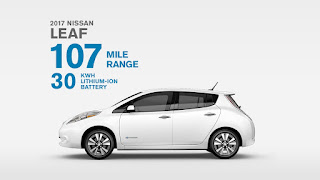Maybe you’ve never heard of the Leaf, but Nissan’s first all-electric car launched back in 2010, is still the world’s top-selling electric vehicle. While more than 250,000 units have sold worldwide, those numbers don’t reach initial sales targets … so Nissan has gone back to the drawing board. Enter the e-Power, a hybrid automobile that, Nissan hopes, will bring it back into contention in the growing hybrid market. And growing is right. Nearly every major brand has invested in hybrid technology, as growing demand and cheaper alternative energy led to more people becoming “greener.”
Nissan’s re-entry into this market will be a “near electric” Leaf, a vehicle which, like the Ford Fusion and Chevy Volt, will share some manufacturing scalability with its fully-electric cousin. That step is a definite cost saver, which immediately puts Nissan in a strong market position. If they can save cash on development and manufacturing, they can pass those savings on to customers and compete on price in a market segment known to be a bit more expensive than traditional fuel vehicles.
This alone should help Nissan make up some of the ground it lost by trying – unsuccessfully – to jump ahead of the competition and go right to fully electric vehicles. The market just wasn’t ready. So, this is a step back of sorts … though Nissan isn’t positioning it that way. The plan has some pitfalls. This is still just a stopgap for Nissan, though. The company still expects all-electric vehicles to be the wave of the future. They future is just not “now” yet. So, in the meantime, they will push their hybrid up against brands like Toyota’s Prius as well as American models such as the Ford Fusion and Chevrolet Volt.
Speaking to Reuters, Nissan executive Hideyuki Sakamoto admitted as much. “We can't avoid the fact that EVs remain expensive compared with conventional gasoline vehicles, while there's also an ongoing assumption that EVs aren't suited to traveling long ranges…”
Reading between the lines there, it’s easy to see that Sakamoto is looking forward to a day when technology allows the company to remove those limitations on electric vehicles…or, perhaps, move to another “green” technology altogether. Hydrogen fuel cell vehicles are the next evolution waiting in the wings, with some automakers champing at the bit to get those out to the market. The biggest drawback there — nowhere to fill up. Gas stations are everywhere, and electric charging stations are becoming more prevalent, but there are still very few spots where people can refuel hydrogen-cell engines. That may change … but not yet.
William Doonan is a tax law and legal expert in New York.

No comments:
Post a Comment